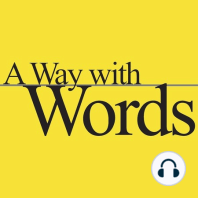6 min listen

What's a Hobson's Choice? - 15 April 2009
FromA Way with Words - language, linguistics, and callers from all over
What's a Hobson's Choice? - 15 April 2009
FromA Way with Words - language, linguistics, and callers from all over
ratings:
Length:
4 minutes
Released:
Apr 15, 2009
Format:
Podcast episode
Description
What's a 'Hobson's Choice'?If you're facing a Hobson's choice, you don't really have much to choose from. The phrase describes a situation in which your options are either to take what's offered, or else take nothing at all. Martha offers some choice words about the origin of this term. Recently a friend emailed to ask about a curious phrase she'd run across. A newspaper columnist argued that when it comes to fixing the economy, the Obama administration faces a Hobson's choice. In other words, the writer said, shoring up U.S. banks may be wildly unpopular, but economic recovery requires doing exactly that. You might guess from the context that a Hobson's choice isn't really a choice at all. You either take what's offered, or get nothing. A great example is the declaration by automaker Henry Ford. In his 1922 autobiography, Ford wrote that his Model T would be available in any color, quote, 'so long as it is black.'The phrase Hobson's choice goes all the way back to 17th-century England. For 50 years, Thomas Hobson ran a stable near Cambridge University. There he rented horses to students. Old Man Hobson was extremely protective of those animals. He rented them out according to a strict rotating system. The most recently ridden horses he kept at the rear of the stable. The more rested ones he kept up front. That meant that when students came to get a horse, Hobson gave them the first one in line -- that is, the most rested. He'd let them rent that horse, or none at all. Hobson and his curmudgeonly take-it-or-leave-it rule apparently made quite an impression on Cambridge students. They included the great poet John Milton, who wrote about Hobson. Meanwhile, his horses left their hoofprints in our language, in a phrase that means 'taking what's available, or else not taking anything.'Well, if you want to talk about language, I hope you'll choose to email us. Our address is words@waywordradio.org.--Get your language question answered on the air! Call or write with your questions at any time:Email: words@waywordradio.orgPhone: United States toll-free (877) WAY-WORD/(877) 929-9673London +44 20 7193 2113Mexico City +52 55 8421 9771Site: http://waywordradio.org.Podcast: http://waywordradio.org/podcast/Forums: http://waywordradio.org/discussion/Newsletter: http://waywordradio.org/newsletter/Twitter: http://twitter.com/wayword/Skype: skype://waywordradio Copyright 2009, Wayword LLC.
Released:
Apr 15, 2009
Format:
Podcast episode
Titles in the series (100)
The Train is Servicing the Station (minicast) by A Way with Words - language, linguistics, and callers from all over